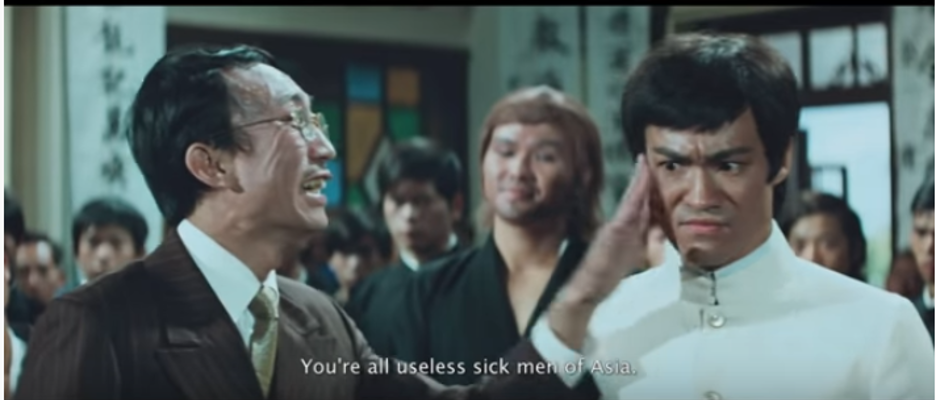
The COVID-19 pandemic has brought with it a massive rise in incidents of racism against people from China and more broadly against people appearing to be of East Asian descent. It has also given rise to unprecedented levels of biased reporting in the media. These two phenomena are related, as became abundantly clear when, on February 3, the Wall Street Journal chose to publish an opinion piece with the headline “China Is the Real Sick Man of Asia.”
Financial experts like to use the phrase “sick man of” followed by the name of a continent as a metaphor for a country in economic crisis. Not so long ago, Greece was the “sick man of Europe,” for instance. The phrase has a long history in this economic usage and may not always be frowned upon in that context, but none of that is relevant here. There are clear cultural reasons why the term is experienced as offensive and racist when applied to China or Chinese people.
Some cultural background
It so happened that, shortly before the Wall Street Journal piece was published, the phrase “sick man of Asia” came up in a modern Chinese literature course that I teach together with my colleague Professor Xian Wang. In class, Professor Wang showed the students what is probably the locus classicus for the offensive use of the term: a scene from the 1972 Bruce Lee movie Fists of Fury. Set in the early twentieth century, the scene shows Bruce and his fellow kung fu fighters being taunted by a Japanese rival. The screenshot below shows the key moment.

The phrase has a much longer history, of course, but this is the moment when it entered into popular culture, and cultural memory, and became forever linked in many people’s minds with feelings of anger and humiliation. It’s worth adding that this movie was made in British-ruled Hong Kong in 1972, when China was all but closed due to the Cultural Revolution. So this display of racist insult, and Bruce Lee’s ultimate victory over it, does not have a communist background. (If you don’t understand how a Japanese person can be racist to a Chinese person because both are Asian, then you are part of the problem.)
For our students, the discussion of the cultural background of the phrase “sick man of Asia” helped to inform their awareness of its potential to cause serious offense. The Wall Street Journal, on the other hand, arrived at no such awareness.
Despite urging from 53 of its own reporters and editors, the paper refused to apologize for the headline or for its equally sickening subheading, which said about China that “its financial markets may be even more dangerous than its wildlife markets.” The Journal saw no problem in profiteering from a human tragedy in China in order to make a point about the country’s political and economic system. The conclusion, so it seemed, was that China as a whole was “sick,” that its government had made it “sick,” and that China being “sick” was a threat to the rest of the world. There was no expression of empathy with the “patient.” This fundamentally inhumane stance, which perceives sick people as threats rather than as human beings in need of care, is the polar opposite of the principles of integral human development.
A problematic perception
Certainly not all media coverage of China in the context of the pandemic has been so blatantly incompetent. But what even many of the well-researched articles by the best journalists have had in common is this general lack of empathy. Compared to the media coverage of the spread of the pandemic across other parts of the world, say Italy or New York, there have been very few human interest stories about China. Even if individual human suffering was described, the point was always to highlight the shortcomings of the Chinese political system. Empathy is extended only to those Chinese individuals who choose to challenge their government, or to those who can be portrayed as victims of that government.
Meanwhile, the US president started referring to the “Chinese virus” and openly mocking Chinese accents in English, as he had done on previous occasions as well. His example apparently influenced his staff to call the virus the “Kung-flu” and made members of Congress and his administration comfortable in openly expressing xenophobic views. Mike Pompeo, the US Secretary of State, recently went on record saying that “China has a history of infecting the world.”
US journalists, to their credit, called out the racism in this case, but not because of its disrespect toward Chinese people in general, but rather because of how it incited violence against Chinese Americans. The president was quick to express his “love” of Chinese Americans. Since then, his re-election campaign workers have been instructed to disseminate a very strong message that China caused the pandemic, but that Chinese Americans are not the enemy. The GOP campaign instructions state specifically: “No one is blaming Chinese Americans. This is the fault of the Chinese Communist Party for covering up the virus and lying about its danger. This caused the pandemic and they should be held accountable… No one has suffered more from the murderous Communist Chinese Party [sic] dictatorship than the people of China. We stand with them against their corrupt government that caused this pandemic.”
The logic here is flawed in many ways, but perhaps most importantly because it fails to mention that millions of “the people of China” are members of the Communist Party, and that even more millions of “the people of China” are in no way “against” their government. The cause of human dignity demands of us that we respect Chinese people as individuals, regardless of what we think of their government and regardless of whether or not they choose to stand up against that government. It demands of us that we think of China not as a uniform entity where everybody thinks the same way, or where everyone is “brainwashed,” to mention yet another “sickness” often mindlessly imposed upon Chinese people. And it demands of us, first and foremost, that we acknowledge the human suffering in places like Wuhan just as we acknowledge it in other parts of the world.
Kellogg Faculty Fellow Michel Hockx, a professor of Chinese literature, is the director of the Liu Institute for Asia and Asian Studies, part of the Keough School of Global Affairs.





